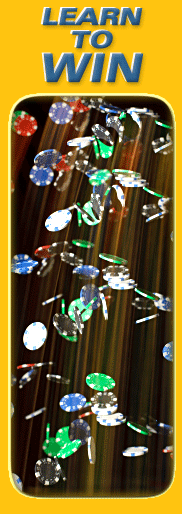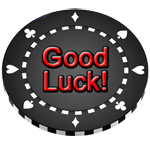Omaha Poker Basics
This lesson about Omaha Poker basics is taught as an alternative to Texas Holdem prominently featured on TV and poker tournaments. Omaha Poker is actually one of the most popular poker games in casinos and tournaments, second only to Texas Holdem. Omaha Poker basics are not that different from Texas Holdem, so players of one game can easily learn the concept of playing the other.
The difference between the two is that Omaha Poker allows players to create a hand out of nine available cards, whereas Texas Holdem allows only seven.
Often, Omaha is played as a Hi-Lo game where the best and lowest hands in the game split the pot between themselves. This grants more opportunities to win and convinces players to stay in a game that would be unfavorable if it were Holdem.
The Hi-Lo game is also known as Omaha Poker Hi-Lo Split or 8-Or-Better.
Game Rules: Omaha Poker Basics
Omaha basics are not difficult to learn, since the standard rules apply as to which hands are better or worse. Unlike Texas Holdem where players are dealt two hole cards, players are dealt four in Omaha to make the best hand.
Be warned, though--being dealt 4 cards does not give you 2 extra hands, it gives you 6. You must use at least 2 of your hole cards and any 3 of the 5 cards on board to make the best hand. Hands are ranked in the same way as Holdem that being Royal Flush as top hand down to High Card being worse.
You will discover that Omaha can be volatile and bad beats can happen often.
Once you have learned Omaha Poker basics, you can try playing at a low bet table until you become more familiar with the game. Play around with Pot Limit and Fixed Limit tables, as well as Hi/Lo tables. Knowing the foundation of the game is important, but because much of Omaha Poker game play is based upon your fellow players, you need to learn how to read them and when to bluff.
The Deal: Omaha Poker Basics
The dealer begins by dealing each player 4 hole/pocket cards. With those cards in hand, each player will place a bet, often with a lower limit because so much can change once the flop is down on the table.
The next cards to enter play are the first three of the flop. These are community cards that each player will use to complete his or her hand. Any player can use these cards to create a solid hand.
The second round of betting begins after the flop, and since there are still 2 more cards to enter play, betting will likely stay low.
Another community card is turned over by the dealer. This card is called the turn, and it will initiate a third round of betting, which generally has a higher limit, since all but 1 of the cards in play is either on the table or in players' hands.
One final community card is turned face-up, this one is known as the river, and this card is often what makes or breaks a good hand at Omaha Poker, just as it does in Texas Holdem.
The final round of betting follows the river, and this round has the highest limit.
The Showdown: Omaha Poker Basics
In an Omaha Poker showdown, the players must use two of their pocket cards and three community board cards to make their best five card hand. The player holding the best five-card hand is the winner.
Similar to Texas Holdem following the turn and then the river, many players may fold based on the belief they do not have a hand strong enough to beat a challenge. Other players may believe fellow players are bluffing, and take a risk on a low hand.
Additionally, with Hi-Lo Omaha Poker, even players with incredibly low hands that would not win otherwise may stick with the game to the end because they are counting on that Lo pot. This can leave more players in the game than would be in a traditional Texas Holdem match-up.
Tips and Strategies: Omaha Poker Basics
Cards count in Omaha poker. You must use at least 2 of your hole cards.
While in Texas Holdem, you may get away with playing only the community cards on the table or using those with just one of your cards to make a great hand; that is not the case in Omaha Poker.
For example, the community board holds 4 clubs and you have the Ace of clubs in hand while the rest of your cards hold no value. As you have not used 2 hole cards, you do not have a flush.
Another example is a king and an ace in your hole cards, and two kings and two queens are on the table. You will not have a full house, but rather three kings with an ace kicker. This is the most difficult changeover for Omaha if you come from a Holdem background where you don't need to play any of your cards.
Therefore, a great flop does not mean a sure thing, or does having four great hole cards. There are many hand options available for your opponents, with each having nine cards in play.
With Omaha Poker basics, it is wise to remember that if there is even one pair on the board, the odds that one of your opponents could have a full house are very high.
Hi-Lo Omaha Poker Version:
With Hi-Lo Omaha Poker, there are two pots for players to win. The Lo pot goes to the person with the lowest hand, consisting of two hole cards and three community cards. Flushes, straights and pairs don't count for the Lo pot, so the very best hand a person could have would be to have a non-flush Ace to five.
The Hi pot is the more traditional pot, going to the player with the highest hand.
A more detailed lesson of Hi-Lo Omaha follows this Omaha basics lesson.
If you have ever played poker, and especially if you have ever played Texas Holdem, Omaha Poker basics should be easy for you to learn and makes for a genuinely fun and challenging casino game. With all of the possibilities to win, not only do your chances of getting a good hand increase, but your competitors do as well. This makes reading your opponents very important.
See Gambling Teachers bluffing lesson.
Omaha Poker basics is followed by Omaha Advanced
OR
How to Play Poker 1 Program
OR
Learn Poker Games 2 with 7 Game Types
Gambling Teachers Home
GT is attentive about getting the word out about our free programs, lessons and add-ons offered, however, we ask your assistance and consideration in promoting us.
Click link below that reads, "Enjoy this page? Please pay it forward. Here's how..." to add a link to your site, blog or personal page.
Tips, Terms & Wins
Since the casino supplies a dealer for Omaha, one player must be the designated dealer who will act last during the betting rounds.
A disk or ‘Button’ is used to identify the dealer and this is rotated to the left after each hand.
Unlike Stud, all the players do not ante each round. Blind bets are posted to generate a starting pot just the way that they are in Texas Hold’em.










